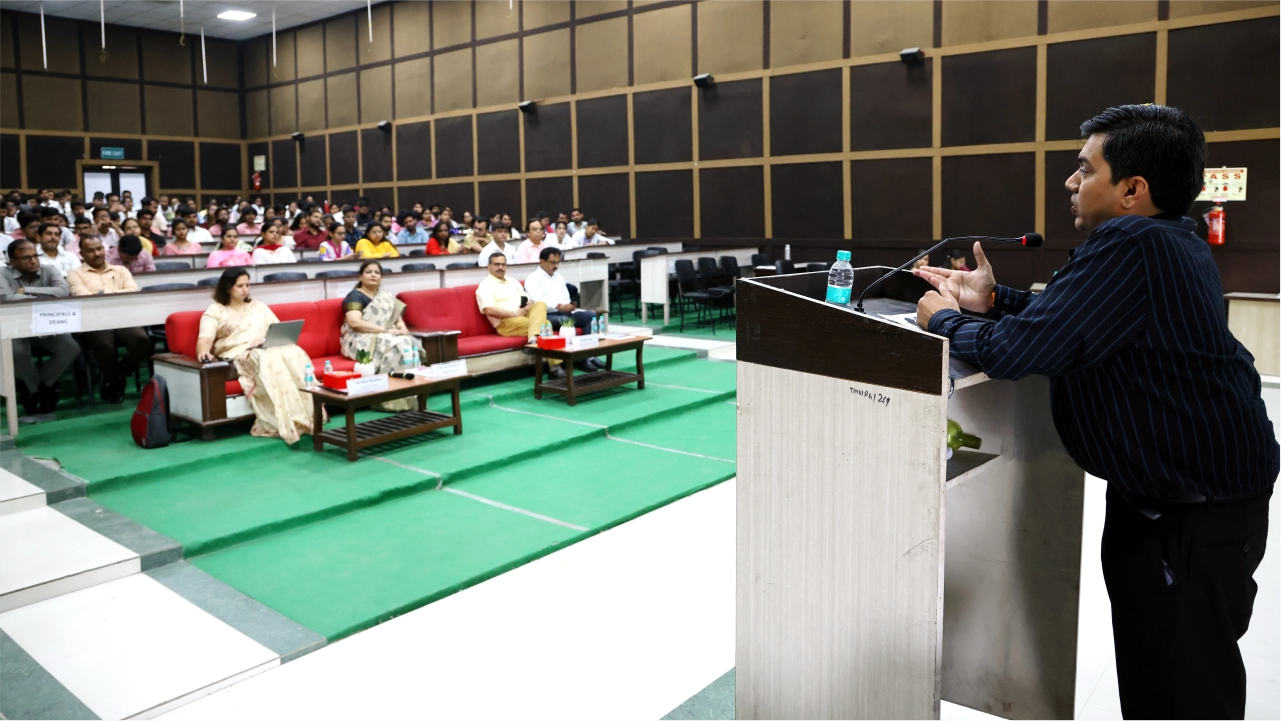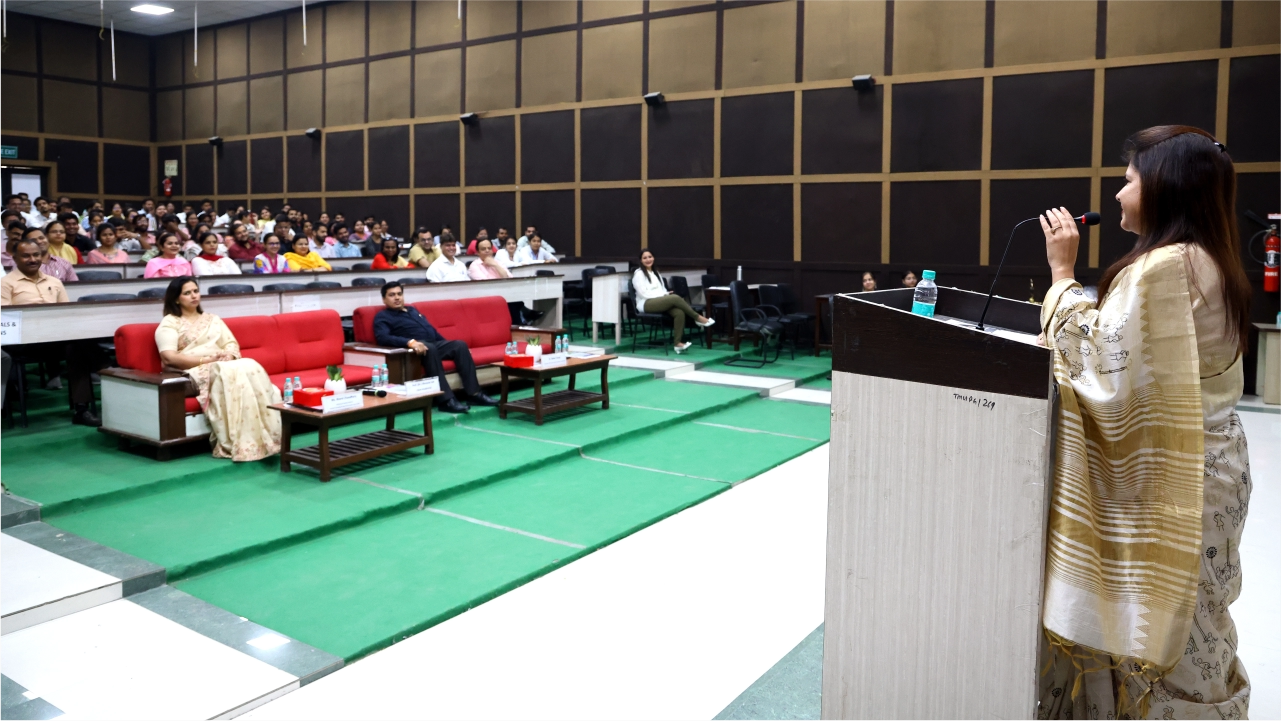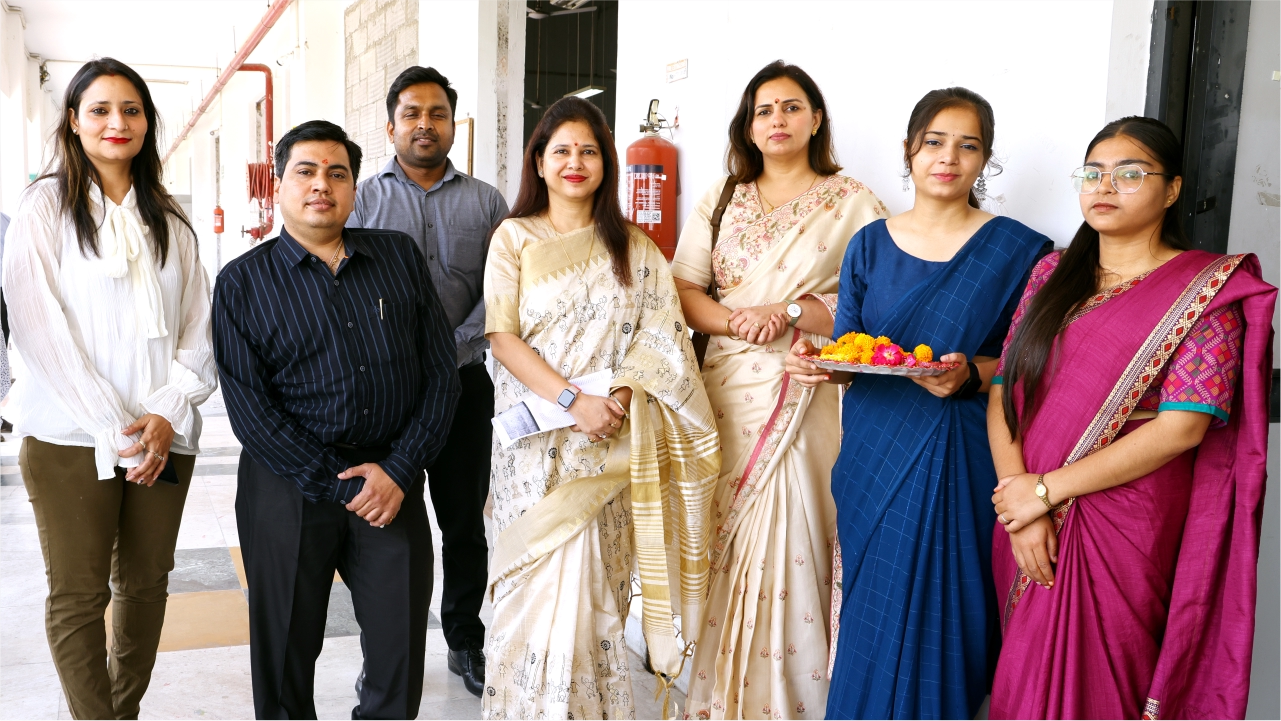Teerthanker Mahaveer University celebrated World IP Day
On April 30, 2024, Teerthanker Mahaveer University, one of the best private universities in India, hosted two pivotal sessions on Intellectual Property Rights (IPR) to commemorate World IP Day, a global event dedicated to discussing the role and significance of intellectual property in fostering innovation and creativity. The theme for this year was IP and the SDGs: Building Our Common Future with Innovation and Creativity. Coordinated by Team IIC, Team IPR Cell, and Team IQAC, the event showcased the expertise and insights of key academicians and was graced by the presence of Dr Manjula Jain, Dean Academics and President IIC-TMU.
Event Overview
The event began with the ceremonial lamp lighting, followed by a welcoming address from Dr. Manjula Jain, who highlighted the critical role of intellectual property in today's dynamic and digitally driven age. Her remarks set the stage for a deep dive into the nuanced world of IPR. Dr. Geetanshu Dawar moderated the sessions, while Dr. Souvik Sur delivered a heartfelt vote of thanks at the end.
Session Details
Intellectual Property Rights and Its Role in Research and Innovation
The first session featured Dr. Rahul Taneja, who delivered an insightful keynote on Intellectual Property Rights and its role in research and innovation. Dr. Taneja explained how IPR serves as a cornerstone in protecting and incentivising creations in the scientific and business communities. He elaborated on various types of intellectual property, such as patents, copyrights, trademarks, and trade secrets, and how each type supports the research and development efforts across different sectors.
Dr. Taneja's presentation included case studies demonstrating how effective IPR management led to significant commercial and competitive advantages. He highlighted the importance of universities and research institutions in fostering an understanding and respect for intellectual property, which in turn drives global technological and social progress.
Intellectual Property Management in Educational Research: Enhancing Innovation and Driving Progress towards Sustainable Development Goals
Following the first session, Miss Mansi Chaudhary took the stage to discuss Intellectual Property Management in Educational Research: Enhancing Innovation and Driving Progress towards Sustainable Development Goals (SDGs) through Effective IP Valuation. She explained how effective IP management not only enhances innovation but also drives progress toward achieving the SDGs through proper valuation and utilisation of IP assets.
Miss Chaudhary emphasised the importance of IP valuation, detailing different methods for determining the economic value of intellectual property, including income, cost, and market approaches. She discussed how universities could use these methods to maximise the impact of their academic research. The session also highlighted the need for academic institutions to develop IP policies that align with their long-term strategic goals concerning sustainability and innovation.
Interactive Discussions
Each session was followed by an interactive Q&A, where attendees engaged with the speakers on various complex topics. These discussions explored the application of IP law, the challenges of IP management in collaborative research environments, and strategies for commercialising research outputs. The engagement from the audience indicated a growing awareness of the importance of IPR in academic and business contexts.
Significance of the Event
Dr. Geetanshu Dawar's closing remarks emphasised the importance of continuing education on intellectual property within academic institutions to cultivate a culture of innovation and respect for IPR. Dr Souvik Sur’s vote of thanks acknowledged the speakers, organisers, and participants for their contributions, stressing the significance of such sessions in shaping the future of research and development through effective IP management.
Impact and Future Directions
The sessions not only commemorated World IP Day but also reinforced Teerthanker Mahaveer University's commitment to leading in the domain of intellectual property education and management. The event served as a reminder of the transformative potential of intellectual property when strategically managed, with implications for academia, industry, and beyond.
Moving forward, the university plans to integrate more robust IP management frameworks and educational programmes into its curriculum and research initiatives. This approach aims to empower students and faculty to navigate, protect, and leverage intellectual property in their professional endeavours, ultimately contributing to a more innovative and sustainable future.
FAQs
Q1: What is World IP Day?
Ans: World IP Day, or World Intellectual Property Day, is celebrated annually to raise awareness about the importance of intellectual property rights in fostering innovation and creativity. It provides a platform for discussions on how intellectual property influences our lives and drives progress.
Q2: Why is Intellectual Property Important in Research?
Ans: Intellectual property is crucial in research because it protects original ideas and inventions, providing researchers with the incentive to innovate without fear of misappropriation. It also facilitates collaboration, as researchers can share their findings knowing that their rights are safeguarded.
Q3: How Can Universities Leverage IP?
Ans: Universities can leverage intellectual property by integrating IP management into their research and educational programmes. By valuing and protecting their intellectual property, universities can drive innovation, attract industry partnerships, and contribute to broader societal goals.
Q4: What Were the Key Takeaways from the Event?
Ans: The key takeaways from the event were the importance of intellectual property in fostering innovation, the need for effective IP valuation, and the role of universities in promoting IP awareness and education. The discussions also highlighted the potential for IP management to drive progress toward Sustainable Development Goals.
Q5: What Are the Future Plans for TMU?
Ans: TMU plans to incorporate more robust intellectual property management frameworks into its curriculum and research initiatives. This approach aims to empower students and faculty to understand and leverage intellectual property, contributing to a culture of innovation and sustainability within the university and beyond. To get updates on upcoming events and workshops, follow TMU’s social media channels.













